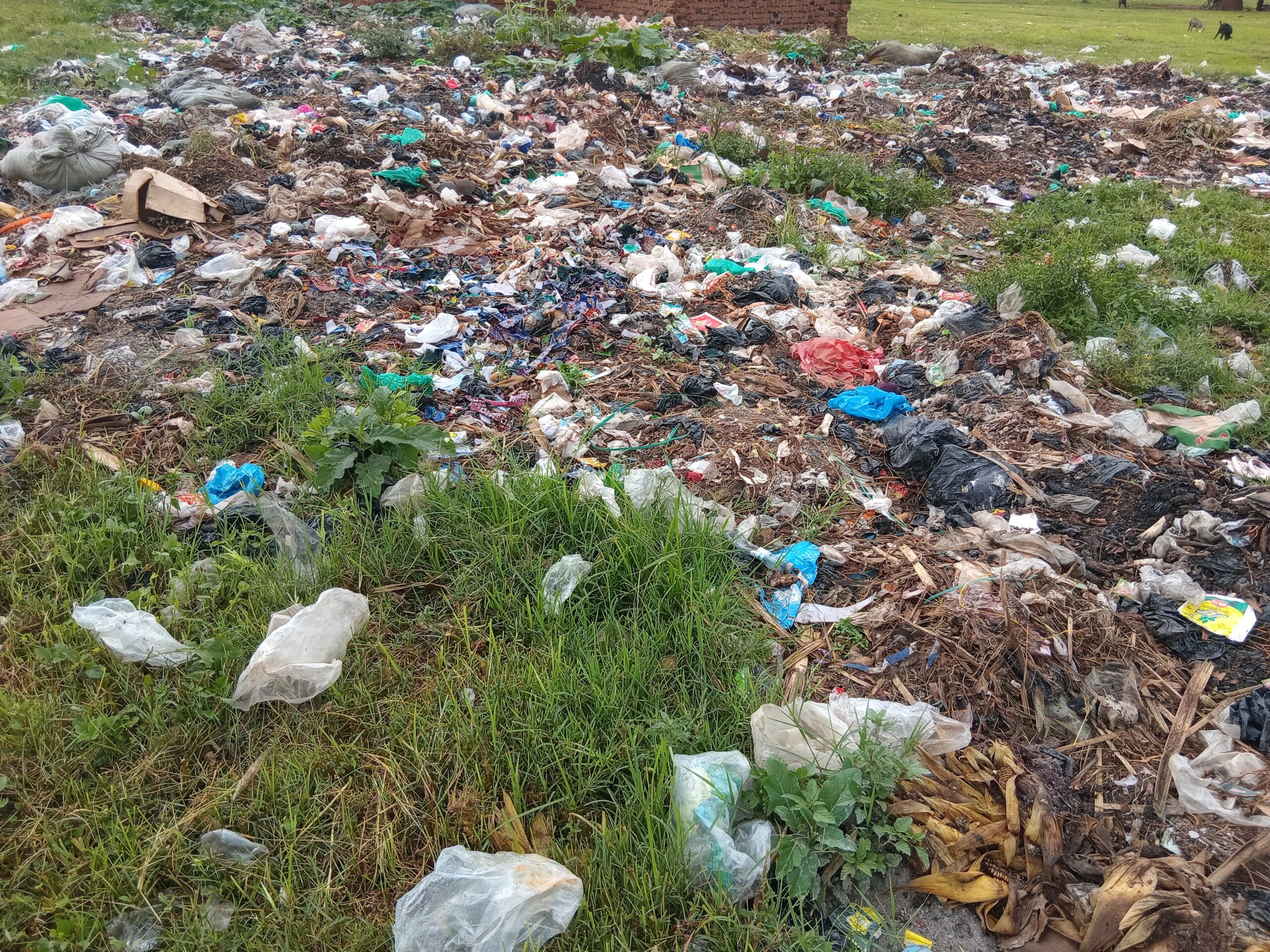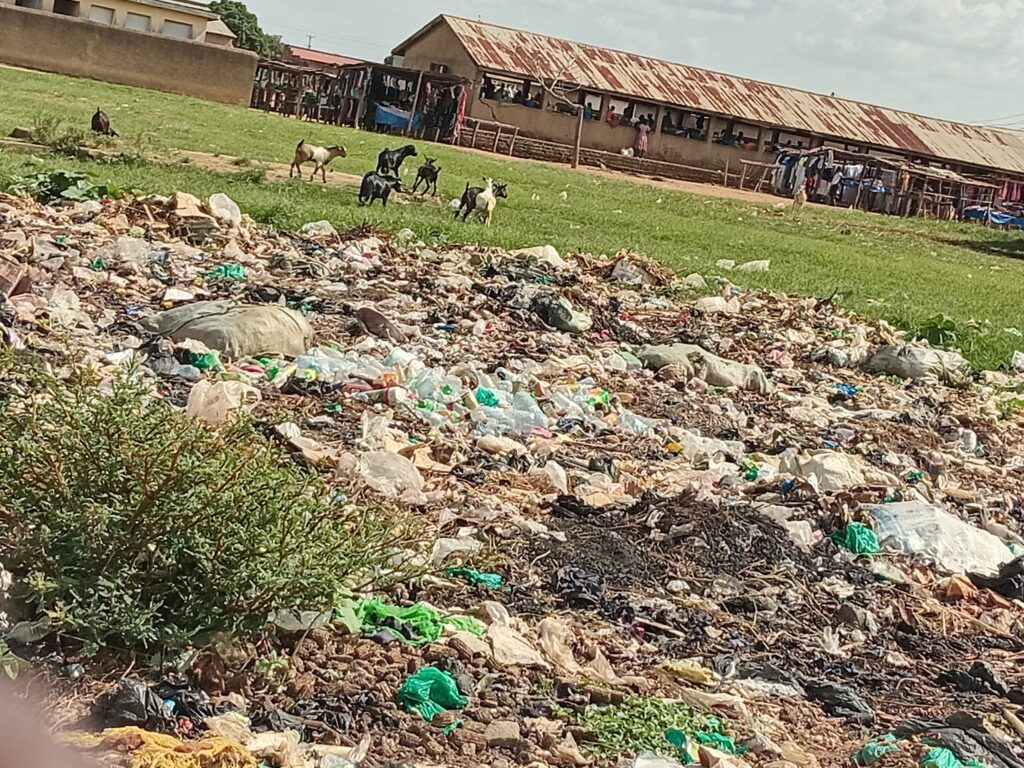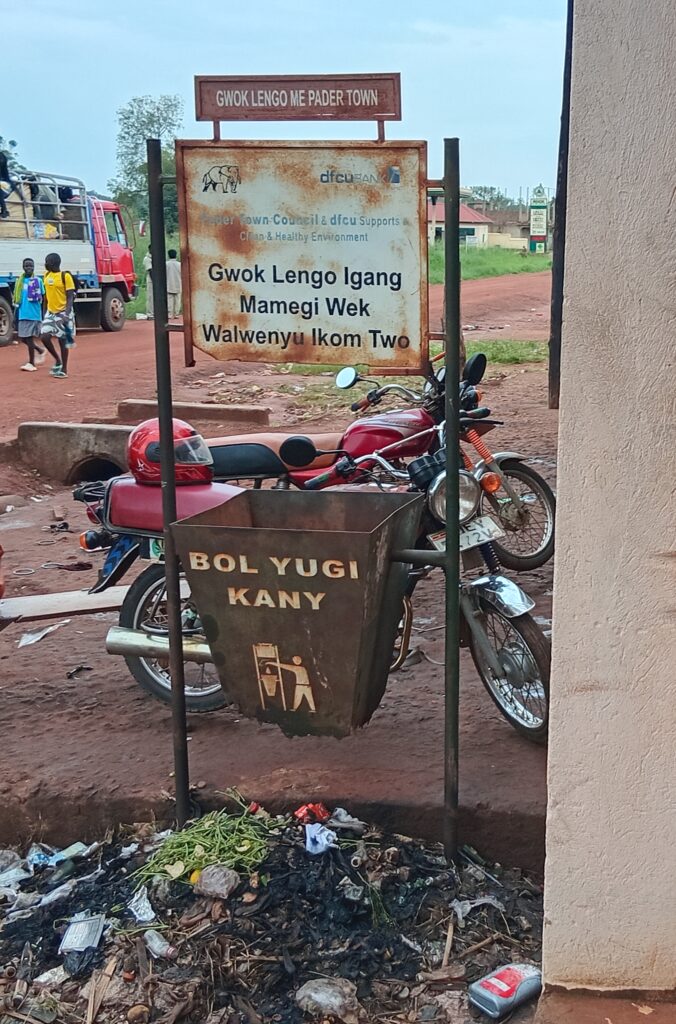
 LUO FM
LUO FM

 LUO FM
LUO FM
31 October 2025, 10:34 pm

By Ayiro Golden Vicky
Plastic waste mismanagement continues to pose a serious environmental challenge in Pader District, with about 90% of residents contributing to the problem through the use and poor disposal of plastic bags, locally known as kavera.
The widespread littering of used plastics across trading centers and town councils has led to significant environmental pollution—affecting soil, water, and living organisms as the materials release toxic chemicals during degradation.
Despite the negative effects, some residents have turned the waste into a source of income. Amoor Quinto Pacer, a kavera collector in Pader Town, says he earns about UGX 2,000 per sack of plastic waste. He, however, advises residents to have individual dumping containers at their homes to promote cleanliness.
According to Auma Patricia, the District Environment Officer, only about 10% of residents handle plastics responsibly, while the remaining 90% still have poor attitudes towards waste management. “Many people believe that every purchase must come with a kavera. This mindset makes management very challenging,” Auma explained.
She added that most residents are unaware that improper waste disposal is punishable by law. Auma urged the public to separate biodegradable and non-biodegradable waste at home to reduce disease-causing vectors.
Auma noted that she has carried out sensitization campaigns in sub-counties such as Angagura, Lapul, and Atanga, highlighting the dangers of kavera to the environment. “In water, plastics choke fish and other aquatic life. On land, they release toxic chemicals that reduce soil fertility,” she said.

She further revealed that in some town areas, mentally unstable individuals are sometimes used to dump plastic waste at night. She cautioned that waste collection should be done by responsible people during daytime.
Tito Brilliant Okello, the LCIII Chairperson of Pajule Town Council, said kavera affects short-growing crops such as beans and vegetables. He added that many plastics come from garages and unsealed products. He says the local leaders proposed to levy 1000/= per household to curb plastic waste mismanagement. “Two weeks ago, we began enforcing new bylaws and council resolutions to keep the town clean,” Tito said.
Due to limited government funding, Tito said his office had designated 30 dustbins, but fewer than 10 remain functional. “People throw hard objects like stones and food remains that cause the bins to rust and break,” he lamented. He added that starting next year, all plot owners will be registered, and those who fail to maintain cleanliness risk losing their plots.

Martin Okello, the District Forest Officer, said plastic litter hinders tree growth and blocks drainage systems. He advised residents to collect and take plastics to central recycling points. “As district leaders, we have an environmental management committee planning to sensitize people through community meetings and radio talk shows,” he said.
He also revealed a new initiative, the ‘Recycling Bottle Project’ in Pajule, which will start next year to recycle plastic bottles into fertilizer and other materials.
In Pukor Sub-county, Ojwini Richard, the LCIII Chairperson, shared that kavera waste poses a danger to animals. “I lost two goats last year after they ate kaveras. These plastics never rot in the soil,” he said, urging residents to burn plastic bags after use in gardens.
Similarly, Omona Alfonse Lukilamoi, LCIII Chairperson of Pajule Sub-county, said plastic pollution is rampant in trading centers such as Wangduku, Amokolagwai, Loyonyero, and Otok. He attributed this to kaveras used for packaging improved seeds, which farmers later dump in their fields, reducing crop yields as roots fail to penetrate the soil.

The leaders collectively called for community cooperation in tackling plastic waste, emphasizing that proper management begins with individuals, not just authorities.
According to the 2024 Uganda Census, 91.6% of households nationally use improper methods to dispose of solid waste such as dumping and burning. The National Environment Management Authority (NEMA) also reports that 40% of plastic waste in Uganda leaks into the environment due to poor handling.